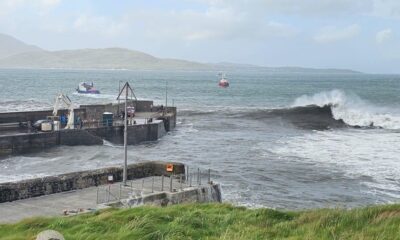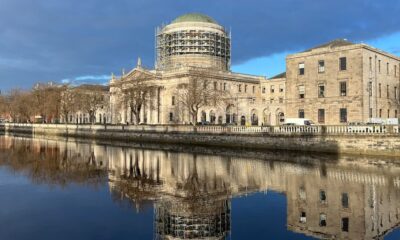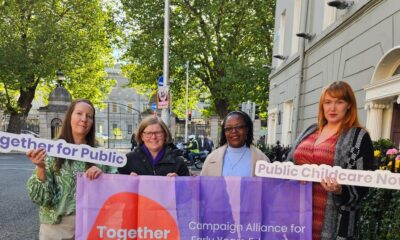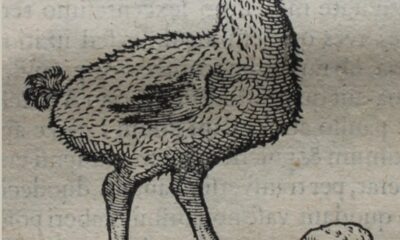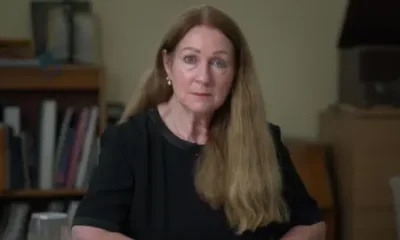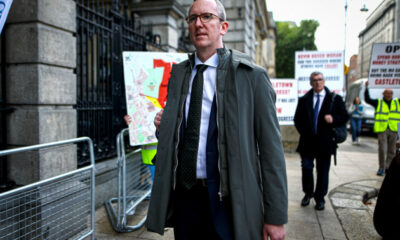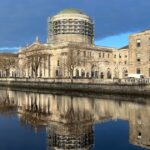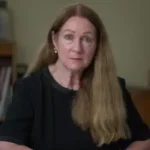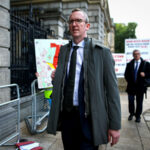Breaking News
Urgent review ordered into asylum seeker taxi costs after BBC investigation
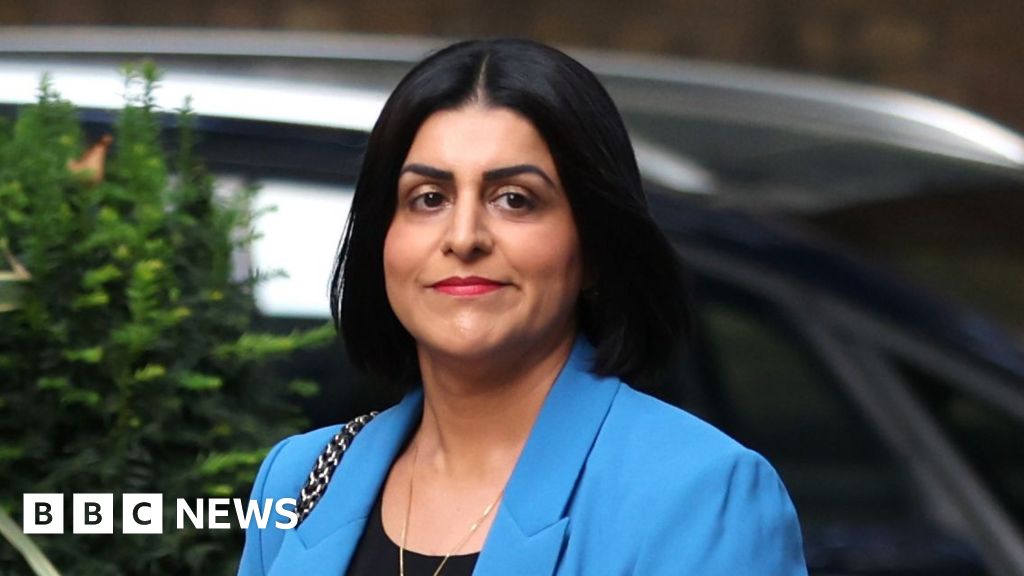
Read more on post.
The home secretary has ordered an urgent review into the use and cost of taxis to transfer asylum seekers from their hotels to appointments.
The move by Shabana Mahmood follows a BBC investigation that found some migrants have to travel long distances on journeys costing hundreds of pounds.
One asylum seeker told the BBC he had taken a 250-mile journey to visit a GP, with the driver telling him the cost to the Home Office was £600.
Asylum seekers are issued with a bus pass for one return journey per week, but for any other necessary travel, such as a doctor’s appointment, taxis are called.
The BBC asked the government how much it spends on taxi travel for asylum seekers via a Freedom of Information Act request, but the Home Office said it does not keep these figures.
The File on Four investigation reported that asylum seekers must show proof of an upcoming appointment at the reception desk of their hotel, where a taxi is booked on an automated system. Public transport or walking is not presented as an option.
This can result in some unusually long journeys and others that are unusually short.
For instance, when migrants move between hotels, they sometimes keep the same NHS doctors – especially for GP referrals.
Work and Pensions Secretary Pat McFadden told BBC Radio 4’s Today programme he agreed that there should be an investigation into how the system works.
“I’m not surprised that this was a feature that caught people’s eye”, he said.
On Tuesday, housing minister Matthew Pennycook told the Today programme it was “questionable” that asylum seekers needed to take such long taxi journeys and said the government would “look into those cases”.
He added that asylum seekers were not “ordinary citizens just jumping on a bus”.
Shadow home secretary Chris Philp, said: “Every £600 taxi ride for migrants is money that should be paying for British patients to see their GP or for ambulances to turn up on time. This is why people feel the system is rigged against them.
“Labour are writing a blank cheque for illegal immigration while services for hard-working families are strained.”
Reform UK MP Lee Anderson said: “This is likely just the tip of the iceberg and yet another example of how the Tories and Labour have spent billions supporting migrants at the expense of our own people.”
A spokesperson for the Liberal Democrats called the taxi costs “a ridiculous waste of taxpayer money and shows exactly why the government must take the asylum crisis seriously and end hotel use”.
The report, however, highlights “the poor living conditions, profiteering and exploitation which characterise our for-profit asylum system”, Labour MP Bell Ribeiro-Addy said.
“We are setting people up to fail while the companies providing asylum accommodation make huge profits on taxpayers’ money and asylum seekers’ misery,” she added.
The BBC went into four hotels housing asylum seekers, as part of its investigation, uncovering cramped living conditions, illegal working, and fire alarms covered with plastic bags, as residents secretly cooked meals over electric hobs in bathrooms.
The BBC found:
- Smoke alarms covered with plastic bags as residents cooking meals used electric hobs in bathrooms
- A 12-year-old girl living in a hotel who had spent three-quarters of her life in the asylum system. “Once we get settled in a place, then they move us,” she said
- Some asylum seekers saying they had no choice but to work illegally for as little as £20 a day to pay off debts to people smugglers
The issue of asylum seekers in hotels has become a heated political issue attracting protests and a legal challenge by an Essex council attempting to close a hotel in its district.
The government plans to end the use of hotels for housing asylum seekers.
In August, asylum seekers told the BBC that protests outside hotels left them feeling isolated and anxious.
They emphasised that they did not choose to live in hotels and struggled in “damp and dirty” conditions.
Breaking News
Father urges State to help him get toddler daughter back to Ireland
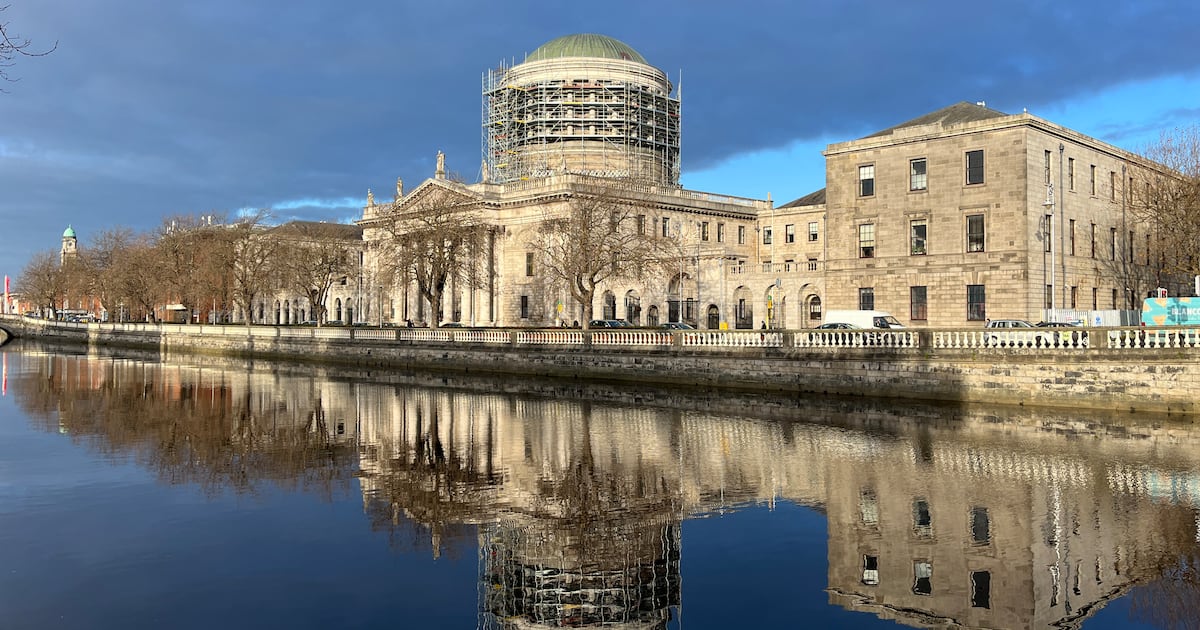
Read more on post .
In what a judge described as a “heart-rending” case, a father wants orders directing the State to take immediate steps for the return to Ireland of his child who he has not seen since early this year.
The toddler was taken by her mother to her native Poland without her father’s consent and remains there after a Polish court directed her return to Ireland.
The parents are in dispute over the mother’s claim the child will receive better treatment in Poland for her medical condition.
On Wednesday, the man told the High Court’s Mr Justice Micheál P O’Higgins, who was dealing with the court’s vacation list, he has not seen his daughter since he saw her in a Polish court last January. He is “the only one fighting for her rights”, he said.
Paul McCarthy SC, for various State defendants, said this is “a human story” and there was no lack of sympathy from the defendants for the predicament of the man and his child.
It is also a legal matter and the man has no cause of action against the State parties, counsel said. The State is “doing all it can” but there were legal and diplomatic limits on what it can do.
Mr Justice O’Higgins said it was a “heart-rending” matter and the court required further materials and legal documents and submissions before deciding how to proceed.
He made directions for exchange of those documents and returned the man’s application for various orders and declarations to October 8th.
He adjourned to the same date the defendants’ application to strike out the man’s proceedings on grounds they disclose no cause of action and are bound to fail.
The judge made orders preventing identification of the parties.
Earlier, he was told that a Polish ombudsman has sought to bring an appeal there concerning the court orders for return of the child.
The man said he wanted orders for the Irish Government to challenge Poland about the failure to return his child to Ireland. He has been left on his own and has “no time for legal gymnastics”, he said.
Breaking News
Hunt for childcare a desperate gambit for parents, campaign group hears
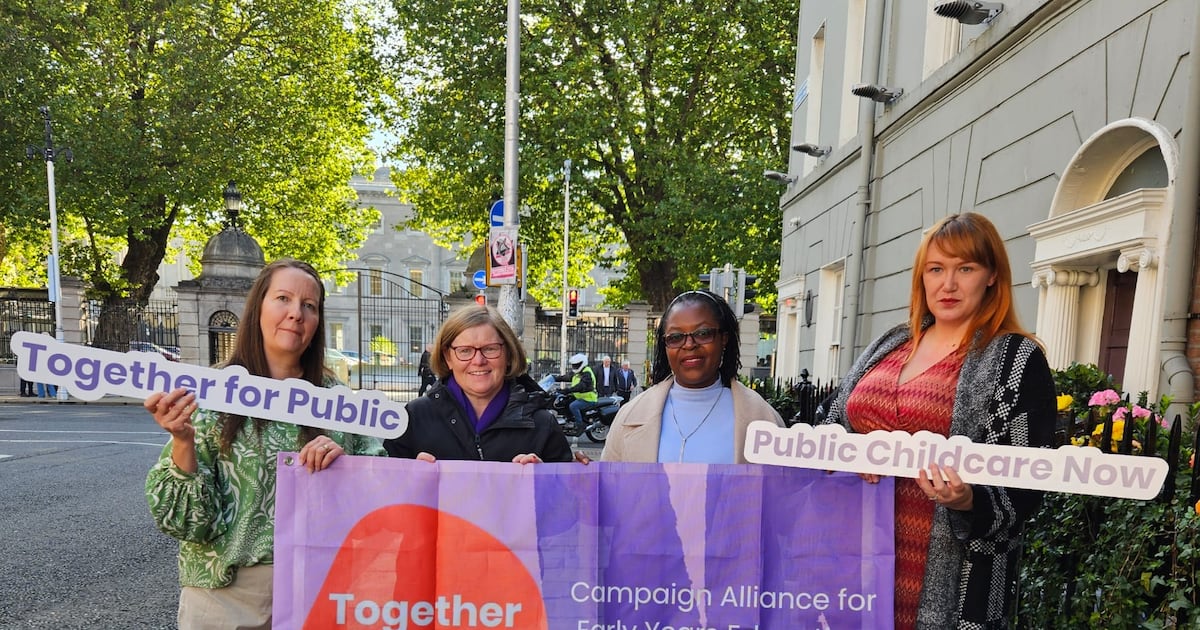
Read more on post .
A shortage of childcare options is leaving many desperate parents with no option but to treat creche places the way they do city centre car parking spaces, a parent of two young children has said.
Jessica Lee, an early years education lecturer at Technological University Dublin who is currently on maternity leave, was speaking at a meeting of a childcare campaign group in Dublin on Wednesday.
The Together for Public alliance is led by the National Women’s Council and is calling on the Government to roll out public early childhood education and care services in the forthcoming budget.
“The way childcare is being treated at the moment is like parking spaces for children,” Ms Lee told the event in Dublin on Wednesday morning.
“It’s like you drive around until you find an empty space to park your child, to shove your child into, to keep them alive until you come home at the end of the day.”
When Ms Lee’s three-year-old, Henry, suddenly lost his place in a childcare setting last year, it caused the family huge stress, she said, because of the lack of alternatives.
Now, after the arrival of Alice (aged three months), there is the pending problem of paying for childcare for two.
“My son isn’t at the point of starting primary school yet and so we’re going to be paying around €1,200 to €1,500 a month … that’s with the subsidies applied. I don’t know how we’re going to manage it, but we have to because we both have to work. The irony in my case is it’s because I want to go back and train early childhood educators.”
Director of the National Women’s Council, Orla O’Connor, said Ms Lee’s experience highlights the shortcomings in a system that is failing the majority of its stakeholders.
“It’s not working,” she said. “It’s not working for children, for women, for parents, for educators. Providers and families are really being pushed to the brink, and they can’t wait any longer to have real solutions. That’s why we’re saying that with Budget ’26 the Government has an opportunity to signal a new approach, and key to that is what they’ve already committed to in the programme for government.”
She said the alliance, which includes more than 40 civil society organisations, is calling for an additional €30 million to provide 3,000 extra places next year as well as funding to continue the process of reducing fees, investment in infrastructure, ring-fenced money for improved pay and a greater targeted supports for accessibility and inclusivity programmes.
“We met with the Minister [for Children], Norma Foley and she said she is committed to what’s in the programme for government,” said Ms O’Connor, “but those were words, and what we need to see now is action in this budget.”
Wednesday’s meeting at Buswell’s Hotel in Dublin 2 heard from a number of other speakers with experience of the sector, including Minna Murphy, originally from Finland, who runs two services in Co Cork and said many small providers like her own are struggling.
[ Free childcare is key in addressing child poverty, advocacy group saysOpens in new window ]
After 10 years of running one preschool, she said, “I had an opportunity to expand, so I opened my second preschool, and I started an after-school, the first ever after-school service in our village. Now, I’m in a position to pay myself a managerial salary, and I am in a position to pay higher salaries for my staff. I wasn’t able to do that when I was just running one service.”
Louise Bayliss, head of social justice at St Vincent de Paul, said adequate provision of early-years services was key to helping families, particularly those with one parent, out of poverty.
“Tackling child poverty and increasing their wellbeing is not only about income transfers,” she said, “it is also about ensuring access to high-quality, universal public services. And early-years services are absolutely key to that.”
Breaking News
Bringing back the dodo: Dublin display reveals rare description of bird before extinction
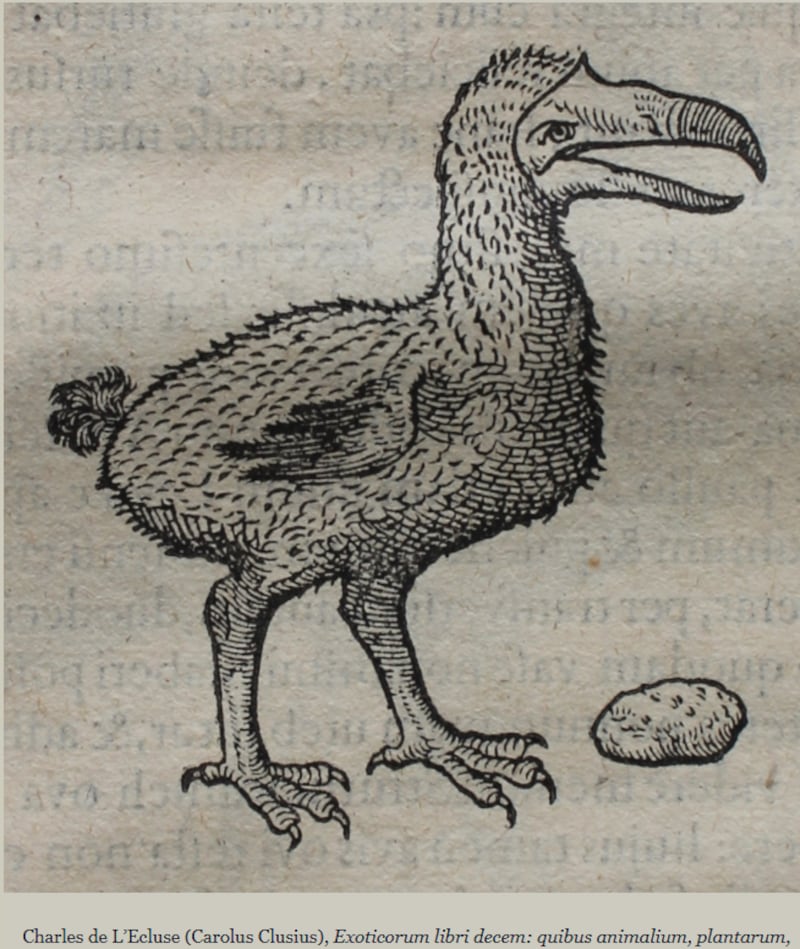
Read more on post .
The dodo is making a comeback – if not in real life, then at least in an exhibition at a Dublin library.
The exotic, flightless bird is one of the best known examples of species extinction, having last been spotted in 1662.
It was only found on the island of Mauritius, with Europeans causing its death through the introduction of predators including dogs and rats.
Last week Colossal Biosciences, a biotechnology company based in Texas, said it wants to de-extinct the dodo along with several other species. It envisages dodos being reintroduced to Mauritius within seven to 10 years.
In the meantime, you can catch a glimpse of the dodo at the Birds Exhibition, which has opened at the Edward Worth Library in Dr Steevens’ Hospital in Dublin 8.
One of the rare books owned by the Dublin doctor Edward Worth includes descriptions and drawings of the bird when it was still present by the Flemish physician and botanist Carolus Clusius.
Along with a detailed description of the bird’s appearance, Clusius recounted why it was never going to be a fixture at the dinner table.
“Sailors name this bird in their language Walgh-vogel, that is, nauseating bird, partly because from after long boiling its flesh did not become more tender, but remained hard and difficult to digest (except its breast and stomach, which were ascertained to be no despicable flavour) [and] partly because they could get many turtledoves, which were found to be delicate and more pleasant to the palate.”

BirdWatch Ireland member Derek O’Reilly said the Edward Worth collection includes “internationally important, beautifully illustrated editions of some of the world’s earliest publications on ornithology.
“Our understanding of birds has come a long way, not least our understanding of the critical challenges of climate change, habitat loss and pollution. This exhibition reminds us of the need to ensure that the wonderful world of birds is preserved and protected into the future.”
Edward Worth Library librarian Dr Elizabethanne Boran said the collection was a huge source of interest in the early modern period.
“We are thrilled to be custodians of this historically important collection. The online exhibition is the Worth Library Trust’s way of sharing the works with as many people as possible.
“A smaller display-case exhibition will be on view in the Edward Worth Library itself and the public are welcome to view a selection of pieces free of charge by making an appointment to visit the library at edwardworthlibrary.ie.”
-
Breaking News1 day ago
Barack Obama to be conferred with freedom of Dublin at ceremony on Thursday
-
Culture1 day ago
Taylor Swift’s new cinema outing generates more than €12million in just 24 hours
-
Culture1 day ago
Milan Fashion Week 2025: Unmissable shows and Giorgio Armani in mind
-
Politics1 day ago
European Parliament snubs Orbán with vote to shield Italian MEP from Hungarian arrest
-
Travel & Lifestyle2 days ago
The Best Way to See Rome? On a Running Tour at Sunrise
-
Business9 hours ago
Households to be offered energy bill changes, but unlikely to lead to savings
-
Culture2 days ago
Marvel stars Mark Ruffalo and Pedro Pascal stand up for Jimmy Kimmel as Disney boycott intensifies
-
Opinion2 days ago
Saving the best for last: How the Making In symposium left an indelible mark


